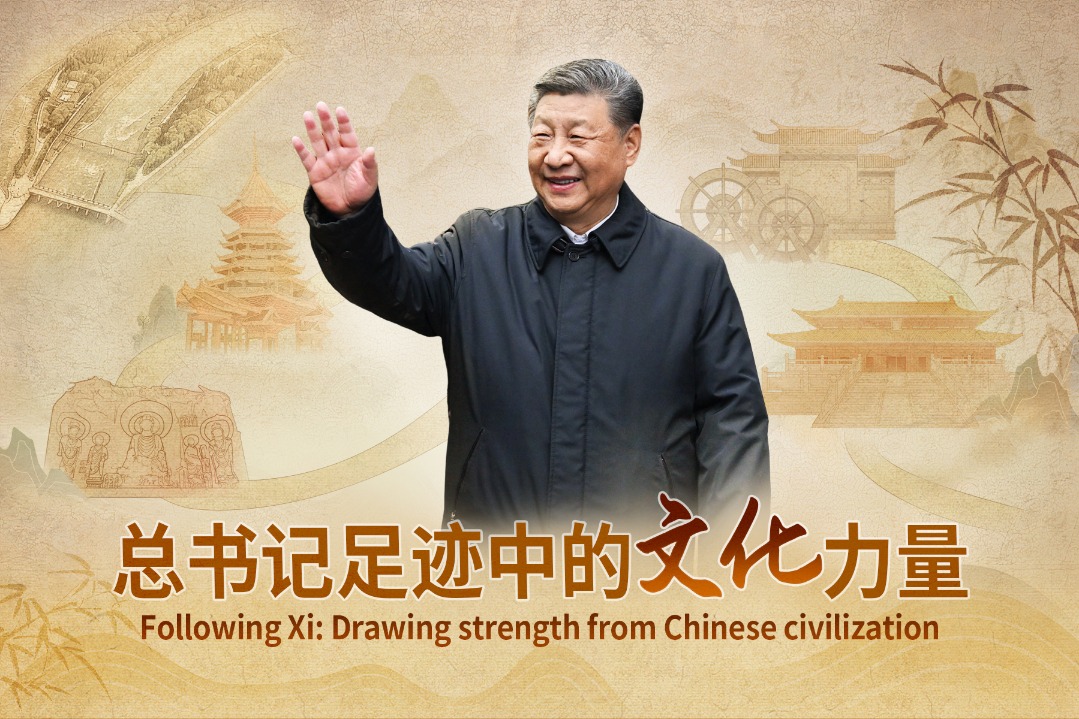More corks ready to pop

|
Leopard's Leap wines are getting attention in the Chinese market. Provided to China Daily |
Joint ventures with Chinese companies offer opportunities to south African wine to make inroads into Chinese market
Unlike most of his peers, Hein Koegelenberg believes that South African brands can carve a niche for themselves in China's fast-growing market for imported wines.
The chief executive of Leopard's Leap Wines believes that the best option for South African wine companies is to form joint ventures with Chinese distributors to overcome hurdles such as higher import duties and low brand awareness, apart from stiff competition.
Koegelenberg says Leopard's Leap is already enjoying the fruits of its successful partnership with the Zhongshan-headquartered company Perfect (China) Co Ltd, as wine sales are fast picking up on the back of excellent customer feedback.
"Our joint venture, Perfect Wine of South Africa, has got off to a good start after receiving stocks of over 100 containers of wine from the Leopard's Leap Vineyard in Franschhoek Valley, near Cape Town, in September. It was the largest consignment of wines ever from South Africa and the biggest China has ever received to date," he says.
In June, Leopard's Leap plans to export another 2.9 million bottles of wine to China. In 2012, about 3.9 million bottles were exported from South Africa to China.
"China is still the market with the greatest growth potential. We started focusing on Asia three years ago and the China sales have already zoomed past every other market in Asia."
Leopard's Leap holds a 25 percent market share in Africa, 25 percent in Europe, 10 percent in Asia and 40 percent for other regions in the world.
Initially created for the British export market, Leopard's Leap has carved its place in the international market with its affordable wines.
Koegelenberg says that the 12-year-old company's brands are now available in more than 40 countries. Leopard's Leap is owned by the Rupert family, which ranked in the top 300 of the Forbes list of 500 wealthy people.
Koo Yuen Kim, the chairman of Perfect (China), says there is an increasing demand in China for low-cost and good quality wines.
"South African wines are ideal for this segment," he says.
"When we decided to join hands with the Rupert family, we were sure that the family's commitment to quality would bring us dividends. After all the Rupert family owns major global brands like Cartier, Dunhill and Montblanc, each of which are testaments to their own for quality."
Jeff Gong, director of Vogue Glamour Brand Marketing Inc, a consultancy in Beijing, says demand for the wine from "new world" countries such as South Africa and Chile is growing steadily in China.
"Earlier people used to go for wines from France or Italy. But nowadays, they seem to be more keen on sampling wines from the new world as they want to try something new and exotic," Gong says.
In wine parlance, old world refers to European countries like France, Austria and Italy that have a rich tradition in wine-making, while new world refers to new wine-making countries such as South Africa, Chile and Argentina.
A Vineexpo study forecasts China's average wine consumption will reach 1.9 liter per person by 2015, while wine exports from South Africa will increase from 1,200 kiloliters to 4,500 kiloliters in the same period.
But some experts like Gong are of the view that South African wines still have a long way to go if they want to make it big in China.
"It is difficult for South African wines to become mainstream wines in China as that market is dominated by old-world wines. At the same time, there is potential in the market for further growth, and there is no reason why South African wines cannot do well, especially if they maintain the low pricing strategy and focus more on promotions, marketing activities," he says.
However, Shen Zhongxun, deputy director of the Wine College at the Northwest Agriculture and Forestry University in Xianyang, Shaanxi province, believes that the price advantage is something that wine producers cannot bank on in the long run.
"There is no way South African wines can continue to be sold at low prices. Labor costs are increasing everywhere," Shen says. "It is quite possible that the labor costs at a wine farm in South Africa are the same as in Australia."
However, South Africa's geography means it will continue to produce superb wines, he says.
"The geographical location and weather has made Western Cape Province the most ideal place in the world for making wine," Koegelenberg says. "It is surrounded by canyons, and there is enough rain and sunshine to produce wines with moderate acidity."
The joint venture, set up in 2011, has so far introduced three Leopard's Leap wines in the Chinese market. These include L'Huguenot shiraz, L'Huguenot shiraz pinotage and L'Huguenot chenin blanc.
Koegelenberg says L'Huguenot has a rich history and takes its name from Huguenot, members of the Protestant Reformed Church of France during the 16th and 17th centuries who came to South Africa in 1688 and were the first to introduce the technique of producing wine in Cape Town.
Shen says that foreign wine makers can expect better returns in China if they team up with well-known Chinese companies as the latter know more about the market, have a broader network and have more sales channels.
Helen Zille, premier of Western Cape Province, says the cooperation between developing countries will soon become a major trend in global trade. China and South Africa can look forward to more sustainable development through these trade agreements, she says.
"With the same spirit of entrepreneurship and love for South African wine, I believe the cooperation will reap rich dividends for both nations," Koegelenberg says.
South Africa has produced wine for 350 years. It is the seventh-largest wine producer in the world, accounting for more than 3 percent of global production.
The country's wine industry has played a key role in its economic development and made substantial contributions, says Bheki Lanqa, South Africa's ambassador to China. It has also been a dominant player in South Africa's economic reforms and transition, he says.
liaoxue@chinadaily.com.cn
(China Daily 01/11/2013 page11)































